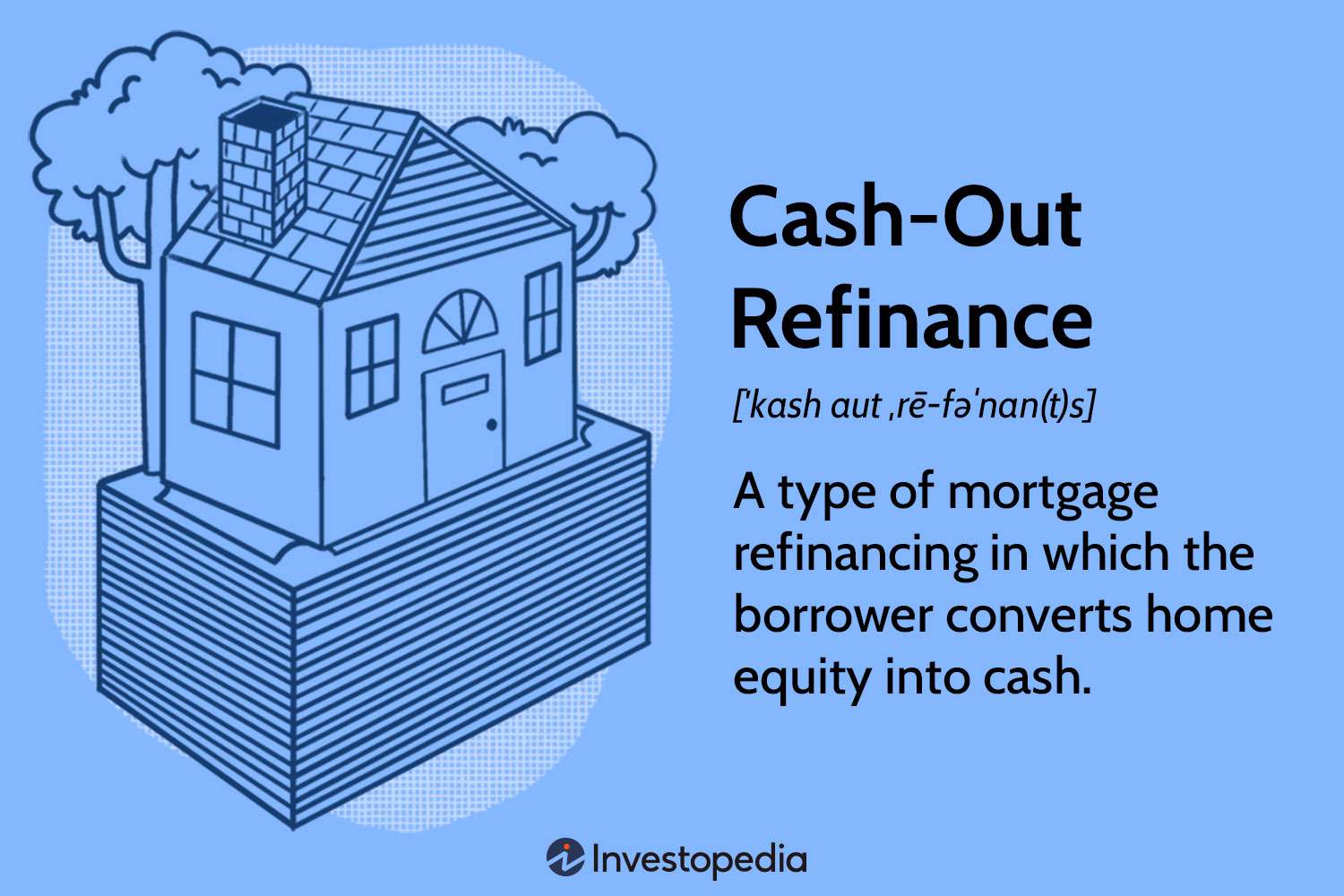Benefits of a Cash Out Refinance
A cash-out refinance is a financial strategy that allows homeowners to access the equity in their homes by refinancing their existing mortgage for a higher amount than what they currently owe. This type of refinance can provide numerous benefits for homeowners who are looking to free up cash for various purposes. In this article, we will explore the advantages of a cash-out refinance and how it can help you achieve your financial goals.
Access to Home Equity
One of the primary benefits of a cash-out refinance is the ability to access the equity you have built in your home. Equity is the difference between the current market value of your home and the outstanding balance on your mortgage. By refinancing, you can convert a portion of this equity into cash, which can be used for a variety of purposes such as home improvements, debt consolidation, or funding major expenses like education or medical bills.
Lower Interest Rates
Another advantage of a cash-out refinance is the potential to secure a lower interest rate compared to other forms of borrowing, such as personal loans or credit cards. Mortgage rates are generally lower than the interest rates on unsecured debt, making a cash-out refinance a cost-effective way to access funds. By refinancing at a lower interest rate, you can save money on interest payments over the life of the loan.
Consolidation of Debt
If you have accumulated high-interest debt from credit cards, student loans, or other sources, a cash-out refinance can be an effective tool for debt consolidation. By refinancing and using the cash to pay off your existing debts, you can streamline your finances and potentially reduce your overall interest payments. This can help you regain control of your finances and work towards becoming debt-free.
Home Improvement Projects
Using the cash from a refinance to invest in home improvement projects can be a smart financial move. Not only can renovations enhance the comfort and functionality of your home, but they can also increase its value. By reinvesting the cash into your property, you may be able to boost its market worth, allowing you to build additional equity over time.
Flexibility and Financial Freedom
A cash-out refinance provides you with flexibility and financial freedom by giving you access to a significant amount of cash. Whether you need the funds for major expenses, investment opportunities, or emergency emergencies access to this liquidity can provide peace of mind and a sense of security. It allows you to have funds readily available when you need them, without having to rely on other forms of borrowing.

A cash-out refinance can offer homeowners a range of benefits, including access to home equity, lower interest rates, debt consolidation, opportunities for home improvement, and increased financial flexibility. However, it’s important to carefully consider the costs and potential risks associated with refinancing before making a decision. Consulting with a qualified mortgage professional can help you assess your specific situation and determine if a cash-out refinance is the right option for you.
Frequently Asked Questions about the Benefits of a Cash Out Refinance
1. What is a cash out refinance?
A cash-out refinance is a mortgage refinancing option where you borrow more than your current loan balance and receive the difference in cash.
2. What are the benefits of a cash out refinance?
The cash-outs of a cash-out refinance include:
Access to cash for home improvements or other purposes
Consolidating high-interest debt into a lower-interestrtgage
Reducing monthly mortgage payments
Potential tax benefits on mortgage interest
3. How much cash can I get through a cash-out refinance?
The amount of cash you can get through a cash-out cash-out depends on factors such as your home’s value, loan-to-value ratio, and lender guidelines. It’s best to consult with a mortgage professional to determine the specific amount.
4. Can I use the cash from a cash-out refinance cash purpose?
Yes, you can use the cash from a cash cash-out finance for various purposes including home renovations, debt consolidation, paying for education, or investing in other properties.
5. Will a cash-out refinance increase monthly mortgage payments?
It depends on the terms of your new loan. If you borrow more than your current loan balance, your monthly payments may increase. However, if you secure a lower interest rate or extend the loan term, your monthly payments could decrease.
6. Are there any tax benefits associated with a cash-out refinance?
There may be tax benefits associated with a cash outing, particularly if you use the cash to improve your home. Consult with a tax professional to understand the specific tax implications in your situation.
7. Can I qualify for a cash-out refinance with bad credit?
Qualifying for a cash-out cash-out with bad credit can be more challenging, but it’s not impossible. Lenders may have different credit score requirements, so it’s best to shop around and explore your options.
8. Is there a limit to the number of times I can do a cash out refinance?
cash-out no specific limit to the number of times you can do a cash out refinance. cash-out lenders may have their own guidelines and restrictions. It’s important to consider the costs and benefits before deciding to refinance multiple times.
9. How long does it take to complete a cash-out refinance?
The timeline for completing a cash cash-ounce can vary depending on factors such as the lender’s process, documentation requirements, and appraisal. On average, it can take 30 to 45 days, but it’s best to consult with your lender for a more accurate estimate.
10. Can I do a cash-out refinance on an investment property?
Yes, it is possible to do a cash out refinance on a cash-augment property. However, the eligibility criteria and loan terms may be different compared to a primary residence. It’s advisable to discuss your options with a mortgage professional.




